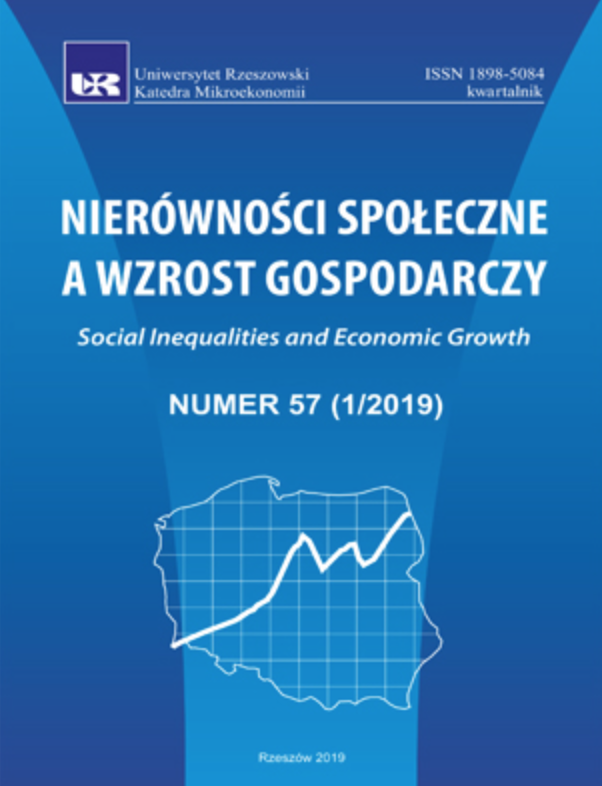Colonial expansion or vital assistance? French capital and interwar Poland
DOI:
https://doi.org/10.15584/nsawg.2019.1.19Keywords:
Poland, France, foreign investments, interwar period, foreign capitalAbstract
France was a major source of foreign capital for interwar Poland, both through government loans and private investment. The French presence was particularly strong in the extraction and paper industries, in energy production, and in banking. French engagement was partly a consequence of the alliance between the two countries, and can be seen as an element of France’s security policy in the East. Poland was forced to give its ally costly concessions, including special treatment of French companies. Hence, Poland can be seen as the object of quasi-imperial expansion, and in the interwar period the left accused France of colonial policies, Nonetheless, Poland remained the initiating side of many negotiations with the French. In Polish historiography this economic foreign policy towards France is often interpreted as a series of costly mistakes. Considering the difficult situation on interwar financial markets, Polish policy can be seen, however, as successful, as it allowed the new state to achieve many of its goals. These included taking over German companies in Silesia, significant investments in infrastructure (including the harbour in Gdynia and the coal trunk line), and outfitting the Polish army. The high cost of French capital was a consequence of the asymmetry of power, and the large needs of the new state.Downloads
Download data is not yet available.
Downloads
Published
2020-11-13
How to Cite
Łazor, J. (2020). Colonial expansion or vital assistance? French capital and interwar Poland. Social Inequalities and Economic Growth, 1(57), 279–287. https://doi.org/10.15584/nsawg.2019.1.19
Issue
Section
Articles
License
Copyright (c) 2019 University of Rzeszow

This work is licensed under a Creative Commons Attribution-ShareAlike 4.0 International License.


